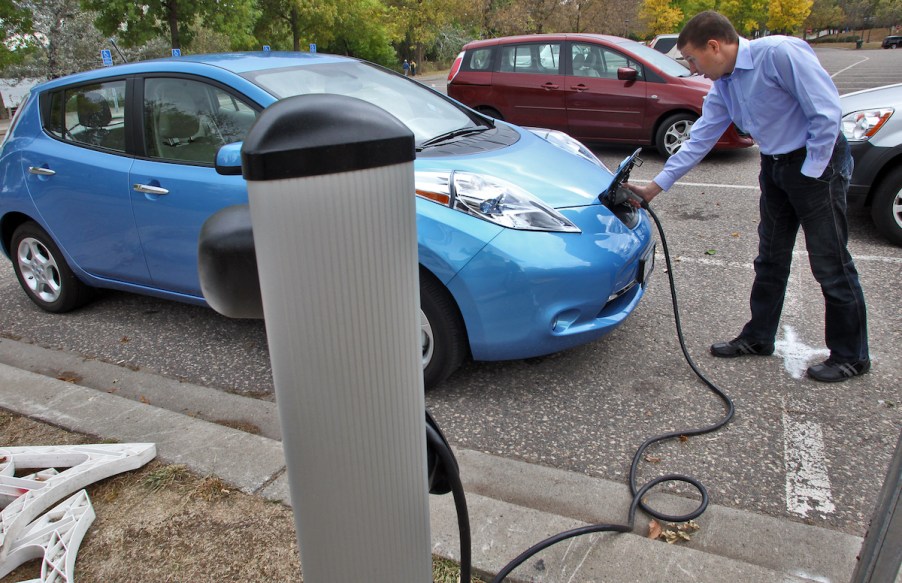
Evie Carshare Is the Nation’s 1st City-Owned Electric Car–Sharing Network
Car-sharing is a recent trend that helps reduce emissions and provides an alternative form of transportation to car ownership. The number of EVs on the road also continues to rise, further reducing emissions. And now, the two trends of car-sharing and electric vehicles converge in Evie Carshare, the nation’s first city-owned EV-sharing program.
How do car-sharing services work?
Car-sharing is an alternative to traditional car rental in which network members can rent cars for short periods. To use a car-sharing service, someone must sign up and typically provide their driver’s license information. Then the member can search for vehicles in the car-sharing network and check them out for a few hours or a full day. Automobiles in a car-sharing network are usually parked in spots around a city that are reserved for that program, Treehugger explains.
In addition to being a rental alternative, car-sharing is also an alternative to owning a car. If a person doesn’t plan to drive frequently, and if a car-sharing service operates near a person’s home, being a member of a car-sharing service could be more cost-effective than owning a vehicle.
One of the biggest arguments for car-sharing is that it reduces the number of motor vehicles on the road, meaning reduced emissions. However, most car-sharing services comprise gas-powered automobiles. Evie is unique because it has an all-electric fleet.
Evie Carshare launched in Minneapolis-Saint Paul in May 2022

The Saint Paul government says Evie Carshare, which debuted earlier this year, had more than 25,000 trips logged in the Twin Cities during the car-sharing program’s first six months. Evie is a first-of-its-kind city-owned electric car-sharing service. It operates just over 100 EVs, and the city plans to add more soon. The network also has 71 chargers for Evie electric vehicles.
In early October, the City of Saint Paul released several statistics about the program’s first six months that paint a promising picture of the EV-sharing service. It estimates Evie Carshare saved Twin Cities residents a considerable amount in transportation costs, about $2.57 million. That’s especially beneficial to lower-income residents who might not have been able to afford other transportation options.
According to Saint Paul, the program “recorded that 33% of the total Evie Carshare usage was by Access PLUS members — a qualified low-income rate plan for households earning less than 50% of Area Median Income.”
Another significant statistic is the emissions Evie reduced: an estimated 741 metric tons. For those who argue that car-sharing could be a step in combating climate change, numbers like that make services such as Evie promising.
What are some other electric car–sharing programs?
Evie is the only program of its kind in the United States, but other car-sharing services exist.
Zipcar is probably the most recognizable name in car-sharing. To use Zipcar, a person needs to subscribe for a monthly or yearly membership. Then they can drive Zipcar vehicles in more than 400 cities.
Another option is Maven, owned by General Motors. Maven differs from Zipcar in that all the vehicles in the network are privately owned. It’s also different because it doesn’t require a membership. Instead, drivers pay an hourly rate to rent through Maven.
In addition, the car rental company Enterprise has gotten into the game with Enterprise CarShare. To use this service, a driver must become a member. The membership gives a driver access to various vehicles in the company’s fleet.


